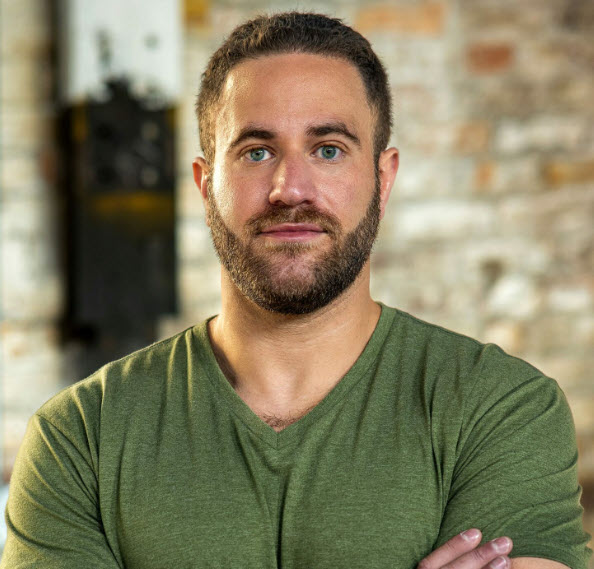Today, SEOJobs.com makes preparing for job interviews easy. Search for interview questions on Google, and you’ll find hundreds of text-based Q&A results you’re expected to memorize.
But let’s face it: memorizing answers doesn’t help you stand out in a competitive job market. You must understand what hiring managers seek and show how your skills align with their needs.
That’s why I built the SEO Interview Simulator – to help candidates practice and master the art of SEO interviews.
Now, let’s talk about why this matters. The SEO industry is changing. There’s more supply of SEO talent than demand, and employers are more selective than ever. To help you land your dream role, I’m breaking down nine reasons why candidates fail SEO job interviews and how to avoid these mistakes.
Lack of Adaptability and Critical Thinking
The issue: Candidates often struggle to adapt to new environments or bring fresh ideas because they come from companies with very specific ways of doing things, making it harder for them to think critically or apply broader strategies.
Recommendation: Don’t just talk about what you’ve done; show how you’ve thought about your work. Employers want to see that you can take SEO principles and apply them to new challenges, not just repeat what worked in a specific scenario.
Here’s how you can stand out:
- Share diverse examples. Let’s say you’ve only worked on e-commerce SEO. Talk about how you’d approach local SEO or a content-heavy blog strategy if given the chance. Show that you’re not boxed into one way of thinking but can adapt to different business models or industries.
- Frame your experience with curiosity. If your last job was highly prescriptive, explain how you questioned or improved processes instead of just following them. Employers love candidates who think critically, even in structured environments.
- Highlight continuous learning. Have you taken a course, attended a conference, or read an interesting SEO blog post? Mention it. This will show that you’re proactive about staying ahead of the curve and ready to bring fresh ideas to your team.
Remember, SEO isn’t static. Google changes all the time and companies want to hire employees who are able and willing to adjust at any point in time.

One of the biggest challenges we’ve seen when hiring SEO talent is that past experience doesn’t always set people up for success outside of the company they worked for. If a brand or agency has a really specific way of doing things, it can be tough for someone to adapt those skills to a new environment…“
Jason Berkowitz,
Founder, SEO Director
BreakTheWeb
Limited Client Management Experience
The issue: Many candidates claim to have client experience, but their experience is limited to answering questions or presenting reports. They lack the more profound skills to manage client relationships or project management.
Recommendation: If you want to stand out, you need to go beyond simply showing up and executing “check box SEO.” Employers are looking for SEOs who can manage client engagements. This requires you to proactively solve problems, navigate tough conversations, and align your SEO strategies with a client’s broader business goals.
Start by sharing examples that showcase your ability to lead by example. For instance:
- Did you manage a cross-functional team to implement an SEO strategy?
- Have you set client expectations and successfully navigated times when the data wasn’t matching their immediate goals?
If you have zero client engagement experience, you should avoid sharing how you would approach taking on this added responsibility and pre-emptively addressing issues you believe could arrise. This shows that you think like a strategic marketing partner, not just an SEO technician.

“Client experience has been a challenge in hiring, given we work off of a direct to expert model and do not have separate account managers. Many applicants cite client experience, but it’s limited to answering questions and presenting reports, not ongoing management of the client relationship or project managing work. Finding SEOs who understand holistic SEO strategy is also a challenge—I need my SEOs to be marketers who can drive measurable outcomes for brands, not traffic to content websites that are monetized off of ads.”
Natasha Burtenshaw-deVries,
Director of Organic Growth
Flywheel Digital
Proficiency in Technical SEO
The issue: Many candidates entering the SEO field lack a deep understanding of technical SEO, which poses a significant challenge for businesses that rely on complex technical strategies to improve search performance.
Hiring managers are finding that most candidates don’t have the hands-on experience necessary to address these challenges effectively. While candidates may have a grasp of fundamental SEO practices, their inability to dive into and resolve deeper technical issues can limit their overall impact on an SEO team.
Recommendation: Strong technical SEO skills are essential to stand out in today’s competitive job market. While many candidates excel at on-page optimization and content strategies, demonstrating proficiency in technical SEO will set you apart.
In interviews, focus on storytelling and highlight examples of how you’ve solved complex technical issues. Bonus points if you can share quantifiable impacts. For instance:
- Did you resolve indexing issues preventing critical pages from appearing in Google’s index?
- Can you explain how you implemented structured data to enhance search visibility?
- Have you troubleshooted complex JavaScript issues to improve crawl budget efficiency?
Another way to set yourself apart is by demonstrating your efforts to stay ahead of the curve. Employers value knowledgeable candidates who have adjusted to technical changes like mobile-first indexing, JavaScript rendering, Core Web Vitals, and even AI-driven search updates (AIO anyone?). This shows not only your technical expertise but also your adaptability in an ever-changing SEO landscape.
Lastly, emphasize your ability to communicate technical concepts in a way that aligns with broader business goals. This combination of technical skills and strategic thinking will undoubtedly make you a top candidate.

“One of the hard skills that few candidates come to the table with is advanced technical SEO. We most often find that candidates are comfortable with on-page optimization and content-related skills, but lack proficiency on the technical side. As a result, we typically expect that this skill set will need to be developed here at Uproer. However, a job-seeker can really set themselves apart by demonstrating proficiency in technical SEO.”
Griffin Roer
CEO, Founder
Uproer
High Salary Demands and Professionalism
The issue: There has been a trend of candidates requesting high salaries without the skills to justify them. Additionally, candidates often fail to present themselves professionally in remote interviews, with issues such as poor backgrounds and lack of preparedness.
Recommendation: If you’re asking for a high salary, you must back it up with the skills, experience, and professionalism that make you worth the investment. Despite it currently being a “buyers market”, employers are always willing to pay top dollar for top talent. Still, they are increasingly frustrated with candidates who fail to align their demands with their qualifications or don’t take the interview process seriously.
To set yourself apart:
- Research salary expectations. Before asking for a specific number, ensure it’s realistic for the role, your experience level, and the market. Use resources like our dedicated SEO role pages to benchmark salaries, and be prepared to explain how your skills justify your request.
- Show up prepared. Remote interviews are just as important as in-person ones. Dress appropriately, ensure your background is clean and professional, and test your tech setup beforehand to avoid disruptions. These details might seem small, but they make a lasting impression.
- Exude confidence without arrogance. Employers want to see you’re confident in your abilities but also open to feedback and growth. Practice communicating your achievements and how they’ve delivered results in previous roles.
Finally, remember that professionalism extends beyond appearance. Be punctual, prepared, and proactive in discussing how you’ll add value to the company. A polished interview performance combined with a well-researched salary request shows employers that you’re serious about the role and deserving of their investment.

“I’ve seen a trend in salary requests over the past 1-2 with very high salary demands. This has been challenging for agencies to hire quality talent and balance overhead… We’re looking for folks who speak with confidence and have an ability to communicate well. This has been hard to gauge in interviews for remote talent where people show up looking disheveled and have messy backgrounds on camera.”
Kristan Bauer
Principal
kristanbauer.com
Inability to Justify SEO Recommendations with Data
The issue: Candidates often rely on best practices without explaining the reasoning behind their recommendations, which is especially important when speaking to technical leadership or justifying significant resources for projects.
Recommendation: To stand out, you need to go beyond “best practices” and justify your SEO recommendations with clear, data-driven reasoning. Employers want to see that you’ve done the homework and can connect your suggestions to tangible outcomes. Here’s how to position yourself as someone who doesn’t just follow the SEO playbook but creates strategies backed by evidence:
- Simplify the Story
Data is powerful, but it needs to be presented so stakeholders can quickly understand. Use visuals, concise explanations, or analogies to make your case more relatable. For example, “Improving our crawl efficiency is like giving Google a GPS to find our best content faster.” - Connect Recommendations to Business Goals
Always tie your recommendations to the company’s bottom line. For example, instead of saying, “We need to improve Core Web Vitals because it’s a ranking factor,” explain how faster load times will improve user experience, reduce bounce rates, and ultimately increase conversions or revenue. - Use Real Data
Bring examples from your previous work. Did you recommend consolidating duplicate pages, leading to a 20% increase in organic traffic? Mention that. Did a content update based on keyword intent improve CTRs by 15%? Highlight it. Using quantifiable results makes your case stronger. - Anticipate Pushback
When presenting a recommendation, prepare for skepticism. If you’re speaking to a CTO or technical leadership, be ready to explain why your solution is better than alternatives. If you suggest a major site restructuring, show projections (like traffic growth or cost-benefit analysis) to support your argument.

“There are quite a few difficulties, but if I have to choose one, I’d say it’s the lack of ability candidates have to explain the logic behind a specific recommendation they have for a client. I see many candidates speaking from a ‘best practice’ approach, but best practices are no longer enough in SEO. Instead, we need to imagine we’re talking with the most skeptical CTO, and bring evidence to our recommendations, especially if it requires significant resources to get done.”
Igal Stolpner
Founder and Managing Director
Webify
Lack of Hands-On Experience and Strategic Thinking
The issue: Many SEOs rely on basic knowledge or best practice blog posts, but lack hands-on experience or the strategic thinking necessary to handle more complex SEO challenges.
Recommendation: To stand out in today’s competitive job market, SEOs need to move beyond surface-level knowledge and demonstrate both hands-on experience and strategic thinking. Employers are looking for candidates who can tackle complex SEO challenges with practical solutions, not just repeat what they’ve read online. Here’s how you can showcase these skills:
- Be Transparent About Growth
If you lack experience in a specific area, show you’re eager to learn and grow. Mention any courses you’ve taken, tools you’re exploring, or challenges you’re tackling in your free time. This demonstrates your commitment to staying ahead in the field. - Showcase Real-World Experience
Employers want to know what you’ve done and not just what you’ve read about. Share specific examples of campaigns or projects you’ve worked on, detailing the challenges you faced and how you solved them. Did you successfully optimize a large e-commerce site for Core Web Vitals? Or tackle a site migration with no loss in organic traffic? Talk about it. - Think Beyond the Basics
Don’t just talk about keywords or meta tags—discuss how your SEO strategies align with broader business goals. For instance, if you improve a site’s technical health, explain how that helped drive revenue, reduce churn, or improve customer acquisition. Show that you’re thinking strategically about the bigger picture. - Demonstrate Problem-Solving Skills
SEO is rarely straightforward. Highlight how you’ve solved tough challenges, like diagnosing a sudden traffic drop, fixing crawl issues, or dealing with algorithm updates. Employers want to see that you can think critically under pressure and find creative solutions.

“Finding SEO talent that justifies the high salaries they demand is tough. Many SEOs in the market today lack the practical experience needed for the job. Instead of having hands-on expertise, they often rely on basic SEO knowledge and what they’ve picked up from ‘best practice’ blog posts.“
Bill Sebald
Founder, SEO Director
Greenlane Marketing
Variability in Skill Levels and Lack of Team Management Skills
The issue: The SEO talent pool is varied, with some candidates being too focused on strategy and others too operational. Finding candidates who can manage teams and develop talent while maintaining their SEO expertise is also a challenge.
Recommendation: To succeed in senior SEO roles, you must balance strategic vision and hands-on expertise while demonstrating strong team management skills. Employers are looking for leaders who excel at SEO and can inspire and develop their teams. Here’s how to position yourself as the right fit:
- Be Transparent About Growth Areas
If you’re more focused on one area (strategy or execution), address how you’re actively working to balance your skill set. For instance, mention how you’ve taken steps to stay sharp with technical SEO or learned to delegate operational tasks effectively to focus on strategy. - Balance Strategy and Execution
Show that you can roll up your sleeves when needed. Share examples of how you’ve stayed hands-on, whether it’s troubleshooting a technical issue, running keyword research, or optimizing critical pages. This reassures employers that you understand the day-to-day challenges your team faces and can step in to guide them effectively. - Highlight Team Leadership
Talk about your experience mentoring junior SEOs, managing cross-functional teams, or developing training programs. Employers want to see that you can build up the talent around you and foster a culture of growth and collaboration. - Demonstrate Strategic Alignment
Senior roles require you to connect SEO efforts to broader business goals. Share examples of how you’ve aligned SEO strategies with revenue objectives, customer acquisition, or brand growth. This shows that you’re not just focused on rankings but driving meaningful results.

“When we’re hiring, it’s not just about technical skills. We need people who can also manage and develop teams, and that mix is hard to come by. Hiring for a senior SEO role, in particular, can be a real challenge. Some candidates have held similar roles but have become so focused on strategy that they’ve lost touch with the hands-on work their teams are doing. That disconnect can make it hard for them to truly understand and help solve everyday challenges.“
Lawrence Hitches
General Manager
Studio Hawk
Poor Communication and Storytelling Skills
The issue: Candidates often struggle to adapt to new environments or bring fresh ideas because they come from companies with very specific ways of doing things, making it harder to think critically or apply broader strategies.
Recommendation: Clear communication and storytelling skills are critical for standing out in SEO interviews. Employers aren’t just hiring someone to execute strategies—they’re looking for candidates who can articulate the value of their work and connect it to real business outcomes. Here’s how to sharpen your communication and storytelling skills to set yourself apart:
- Show Passion for What You Do
Employers love candidates who genuinely care about their work. Share the “why” behind your strategies and the results you achieved. This enthusiasm helps interviewers see you as someone who’s not just skilled but also motivated to drive impact. - Speak in Business Metrics
Avoid getting lost in SEO jargon like “keyword rankings” or “backlink acquisition.” Instead, translate your accomplishments into metrics that matter to the business, such as revenue growth, customer acquisition, or cost savings. For example:
- Instead of saying, “I improved rankings for 20 high-value keywords,” say, “I increased organic revenue by 30% in six months by optimizing high-intent pages.”
- Instead of saying, “I improved rankings for 20 high-value keywords,” say, “I increased organic revenue by 30% in six months by optimizing high-intent pages.”
- Practice Brevity and Clarity
Tailor your answers to the audience. If speaking to a non-technical stakeholder, simplify complex ideas without losing the core message. For example, explain technical SEO improvements by linking them to user experience or site performance metrics. - Craft a Compelling Narrative
Every project you’ve worked on is a story. Use a simple framework to explain your work:
- The Challenge: What problem were you solving?
- The Approach: How did you tackle it?
- The Impact: What measurable results did your efforts produce? This framework makes it easy for interviewers to follow and remember your contributions.

“Lack of clear communication and storytelling is the largest gap I see in SEO interviews. I meet plenty of incredible SEOs who very obviously know their stuff, but they can’t articulate what’s so cool about what they do (and the impact it has on a business in real BUSINESS metrics).”
Travis Tallent,
Managing Director, SEO & CRO
Brainlabs
Lack of Hands-On Experience and Strategic Thinking
The issue: Many candidates possess strong tactical SEO skills—such as keyword research, on-page optimization, and link building—but struggle to connect those skills with broader business objectives. This disconnect often arises because hiring managers prioritize tactical expertise without considering whether candidates can deliver scalable, long-term solutions that integrate SEO into the company’s growth strategy. The most successful SEO professionals blend technical proficiency with strategic thinking, but this combination is often overlooked during the hiring process.
Recommendation: To stand out in the hiring process, you need to demonstrate not only your tactical SEO skills but also your ability to think strategically and align your efforts with broader business goals. Employers seek candidates who can bridge the gap between execution and strategy, showing how SEO contributes to long-term growth. Here’s how to position yourself as a well-rounded SEO professional:
- Stay Curious and Proactive
Employers value candidates who are always thinking about the next step. Talk about how you keep up with SEO trends and proactively explore growth opportunities through experimentation, new tools, or innovative strategies. - Align SEO Goals with Business Objectives
When discussing your experience, explain why your work mattered to the business. For instance, Instead of saying, “I increased organic traffic by 20%,” add, “This led to a 15% increase in online sales, helping the company exceed its quarterly revenue target.” This demonstrates your ability to connect SEO metrics with outcomes that drive growth. - Showcase Scalable Solutions
Employers want to know you’re thinking beyond short-term wins. Share examples of how you’ve implemented scalable strategies, such as developing an SEO framework for product launches or building a content strategy that generated long-term traffic growth. Highlight how your solutions were designed to support the company’s future growth. - Be a Problem-Solver
Strategic thinking requires identifying pain points and creating solutions. Discuss a time when you solved a complex SEO challenge—like addressing a large-scale site migration, overcoming technical issues, or building cross-functional alignment. Show how your strategic approach led to measurable improvements.

“The biggest difficulty in hiring SEO talent lies in aligning skills and experience with the specific business needs. Many hiring managers focus on finding candidates with tactical SEO skills—like keyword research, on-page optimization, and link building—rather than seeking individuals capable of delivering sustainable, long-term solutions that enable an organization to scale.“
Jordan Koene,
CEO
Pre Visible
Preparing for an SEO job interview isn’t just about knowing the correct answers; it’s about demonstrating adaptability, strategic thinking, and connecting your SEO efforts to tangible business outcomes. By addressing the common pitfalls outlined above, you can position yourself as a standout candidate in an increasingly competitive market.
If you’re ready to take your interview prep to the next level, try the SEO Interview Simulator. It’s not just about practicing but about mastering the skills that matter most to hiring managers. Good Luck!

